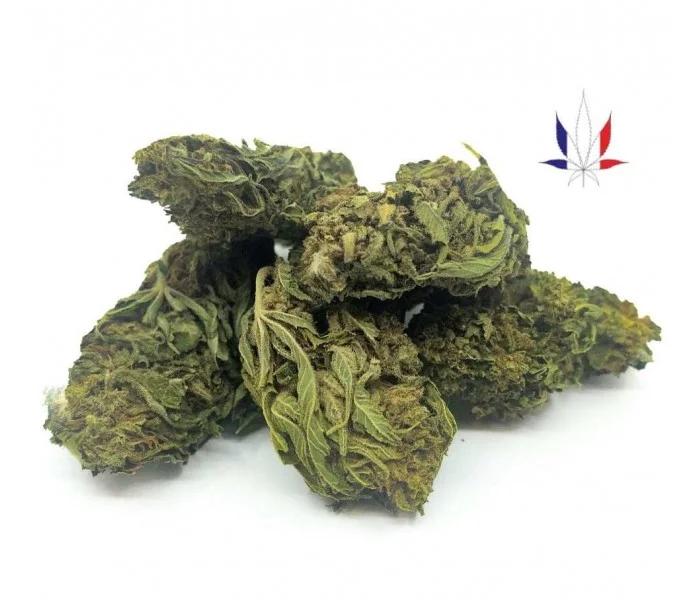Title: “Is Weed Bad for You? Unpacking the Myths and Realities”
In a world where cannabis has shifted from the shadows of prohibition to the spotlight of legalisation, the conversation surrounding its effects on health is more pertinent than ever. What was once primarily the purview of counterculture rebels and misunderstood artists is now a topic of serious statistical analysis, scientific inquiry, and societal debate. For many, the question of whether weed is bad for you evokes passionate arguments and emotional testimonials, while others approach the issue with clinical detachment and a thirst for objective data. This article embarks on a journey through the haze of opinions and evidence, exploring both the potential benefits and pitfalls of cannabis use. As we navigate the intricate landscape of this multifaceted plant, we’ll aim to provide a balanced view that encourages reflection rather than just reaction. Is weed bad for you? Let’s delve into the facts and figures, shedding light on this evergreen question.
Table of Contents
- Exploring the Science Behind Cannabis: Benefits and Risks
- Mental Health Implications: Understanding the Complex Relationship with Cannabis
- Physical Effects of Marijuana: A Detailed Look at Short and Long-Term Impact
- Navigating Responsible Use: Practical Recommendations for Cannabis Consumption
- Q&A
- Insights and Conclusions
Exploring the Science Behind Cannabis: Benefits and Risks
The world of cannabis is both intricate and multifaceted, offering a range of potential benefits and risks. Cannabinoids, the active compounds found in cannabis, interact with the body’s endocannabinoid system, which plays a crucial role in regulating various physiological processes. Some of the noted benefits of cannabis include:
- Pain relief: Many users report significant reductions in chronic pain.
- Anti-inflammatory properties: Particularly beneficial for conditions such as arthritis.
- Mental health support: Some studies suggest potential benefits in alleviating anxiety and depression.
However, the consumption of cannabis also comes with a set of potential risks that should not be overlooked. Regular or heavy use may lead to dependency, affecting mental health and cognitive functioning. Additionally, the method of consumption can influence associated risks. Here’s a brief overview:
| Consumption Method | Associated Risks |
|---|---|
| Smoking | Respiratory issues, exposure to harmful toxins |
| Edibles | Delayed effects leading to overconsumption |
| Vaping | Unknown long-term effects, potential for lung issues |
Mental Health Implications: Understanding the Complex Relationship with Cannabis
The relationship between cannabis use and mental health is intricate, often shaped by individual circumstances, genetics, and underlying mental health conditions. While many users report positive effects, such as reduced anxiety and enhanced relaxation, studies indicate a potential for adverse outcomes, particularly in those predisposed to mental health disorders. Understanding the impact of THC (tetrahydrocannabinol) is vital, as higher concentrations can lead to heightened anxiety, paranoia, and even psychosis in vulnerable populations. This duality of experience sparks important conversations about responsible use and mental health support.
Moreover, it is essential to consider the potential of cannabis as a therapeutic tool. Researchers are exploring its efficacy in treating various conditions, including depression, PTSD, and chronic pain. A careful balance must be maintained, weighing benefits against risks. The following table summarizes key mental health implications associated with cannabis use:
| Aspect | Possible Effects |
|---|---|
| Positive Outcomes |
|
| Negative Outcomes |
|
Physical Effects of Marijuana: A Detailed Look at Short and Long-Term Impact
The physical effects of marijuana can vary significantly depending on the duration and frequency of use. In the short term, users often report changes in their sensory perceptions, enhanced appetite, and relaxation. However, these effects come at a cost, as marijuana can also lead to increased heart rate and fluctuations in blood pressure. Some potential immediate consequences include:
- Dry Mouth: Commonly referred to as “cottonmouth,” users may experience discomfort.
- Red Eyes: Blood vessels in the eyes expand, giving them a distinct appearance.
- Impaired Coordination: Marijuana may affect motor skills and reaction times.
On the other hand, long-term effects of marijuana use can be more complex and potentially more troubling. Continuous use can lead to respiratory issues, especially for those who smoke it, as inhaling any kind of smoke can damage lung tissue. Additionally, long-term users may develop a dependency on the substance, leading to withdrawal symptoms when they try to quit. Here is a brief overview of long-term consequences:
| Physical Effect | Description |
|---|---|
| Respiratory Issues | Chronic bronchitis and reduced lung function. |
| Cognitive Decline | Potential effects on memory, attention, and learning capabilities. |
| Mental Health Risks | Increased risk for anxiety and depression in some users. |
Navigating Responsible Use: Practical Recommendations for Cannabis Consumption
As cannabis becomes increasingly mainstream, understanding how to incorporate it responsibly is essential. Here are some practical recommendations that can help ensure a safer experience:
- Start Low and Go Slow: If you’re new to cannabis, begin with a low dose. Gradually increase as you gauge your tolerance.
- Educate Yourself: Research various strains and methods of consumption. This knowledge empowers you to make informed choices that align with your needs.
- Mind Your Setting: Choose comfortable environments to consume cannabis. Your surroundings can greatly affect your experience.
- Stay Hydrated: Keep water nearby, as cannabis can cause dry mouth and dehydration.
Moreover, consider the following factors that play a vital role in your consumption experience:
| Factor | Impact |
|---|---|
| Potency | Higher THC levels may lead to increased psychoactive effects, especially in inexperienced users. |
| Method of Consumption | Different methods (smoking, edibles, tinctures) have varying onset times and effects. |
| Frequency of Use | Regular use can lead to tolerance, impacting the overall experience. |
Q&A
Q&A: Is Weed Bad for You?
Q1: What exactly is weed?
A1: Weed, commonly known as marijuana or cannabis, is a plant that has been used for centuries for various purposes, including medicinal, recreational, and industrial. It contains compounds called cannabinoids, with THC (tetrahydrocannabinol) being the most well-known for its psychoactive effects, while CBD (cannabidiol) is celebrated for its potential therapeutic benefits without the high.
Q2: Can weed have negative effects on health?
A2: Yes, like any substance, weed can have negative effects on health, especially when used excessively or by certain populations. Short-term effects include impaired memory, altered judgment, and coordination challenges, which can be particularly risky while driving or operating machinery. Long-term, heavy use may lead to dependency issues, mental health concerns, and respiratory problems if smoked.
Q3: Are there any groups of people who should avoid weed?
A3: Absolutely. Pregnant and breastfeeding women are advised to avoid weed due to potential risks to fetal development and infant health. Also, individuals with a personal or family history of mental health disorders, particularly psychosis, might need to be cautious. Children and adolescents are generally discouraged from using cannabis as their brains are still developing.
Q4: What about the benefits? Is there a good side to weed?
A4: Indeed! Weed is heralded for its potential therapeutic benefits. Many users report relief from chronic pain, anxiety, and nausea. Certain cannabinoids have shown promise in treating epilepsy, multiple sclerosis, and even symptoms related to cancer and HIV/AIDS. It’s essential to balance these benefits against the risks and consider individual circumstances.
Q5: How does weed affect mental health?
A5: The relationship between weed and mental health is complex. Some users find it helpful for managing anxiety or depression, while others may experience increased anxiety, paranoia, or depressive symptoms, particularly with high-THC strains. Long-term use has been associated with an increased risk of developing mental health disorders in vulnerable individuals, emphasizing the importance of moderation and awareness.
Q6: Can weed be addictive?
A6: Yes, while not everyone who uses weed becomes addicted, research suggests that about 9% of users may develop a dependency, rising to about 17% among those who start using in their teens. Signs of cannabis use disorder include craving the substance, losing control over its use, and experiencing withdrawal symptoms when not using it.
Q7: How does the method of consumption impact the effects of weed?
A7: The method of consumption significantly influences the effects and risks associated with weed. Smoking can lead to respiratory issues, while edibles may cause delayed reactions, leading users to consume more than intended. Vaporizing is often considered a less harmful alternative, as it produces fewer harmful byproducts, and sublingual tinctures can offer rapid relief without the risks associated with smoking.
Q8: What should someone consider before using weed?
A8: Before using weed, individuals should reflect on their personal health history, any existing medications, and their reasons for using it. Consulting a healthcare provider is a wise step, especially for those with underlying health conditions or those who are pregnant. It’s also essential to stay informed about the legal status of cannabis in one’s area and to approach consumption with a mindset of responsibility and moderation.
Q9: What’s the bottom line on weed and health?
A9: The bottom line is that cannabis can have both positive and negative effects. Its impact varies widely among individuals, influenced by factors like dosage, frequency of use, and personal health conditions. An informed, balanced approach is crucial, as is ongoing research to understand its long-term effects more comprehensively. Ultimately, whether weed is “bad” for you depends on a myriad of personal factors and choices.
Insights and Conclusions
the question of whether weed is bad for you dances at the intersection of science, culture, and personal experience. As we’ve discovered, the effects of cannabis can vary widely, shaped by dosage, individual biology, and the context in which it’s used. While some may find relief and recreation in its embrace, others might encounter unintended consequences. As we navigate this evolving landscape, it’s crucial to approach the topic with a discerning mind, weighing the potential benefits against the risks. Ultimately, the journey of understanding cannabis is as complex as the plant itself—inviting us to explore, question, and reflect on our choices. Whether you’re a seasoned user or a curious observer, the conversation around weed is far from over; it’s just the beginning of a much broader dialogue on health, wellbeing, and the role that substances play in our lives. So let’s keep the conversation flowing, with open minds and a commitment to informed choices.



